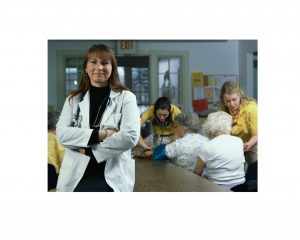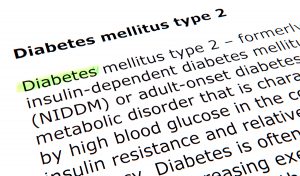Dr. Mauk’s Boomer Blog
Each week, Dr. Kristen Mauk shares thoughts relevant to Baby Boomers that are aimed to educate and amuse.
Dr. Kristen L. Mauk, PhD, DNP, RN, CRRN, GCNS-BC, GNP-BC, FAAN

Guest Blog: 3 Prostate Cancer Warning Signs
About 13 out of every 100 men will get prostate cancer. The older you are, the more at risk your body is to getting prostate cancer. Luckily, there are some clear signs and symptoms you can watch out for to seek treatment early.
Keep reading to know exactly how prostate cancer changes your body so you can catch it at its earliest signs.
Experience Frequent Urination
Feeling like you need to use the restroom every five minutes? This could be a warning sign of prostate cancer. There are other reasons you could be having to urinate more often but if you have a healthy daily routine and the problem persists, you may want to consider the possibility.
The urge to urinate is even worse at night. You might find yourself getting up to go to the bathroom several times in the middle of the night.
This all happens because of how close the prostate gland is to your bladder and urethra. If a tumor is growing on your gland it will cause pressure on your bladder, making you feel like you have to pee more often.
This can also cause difficulty when you’re actually trying to go. You might notice you don’t have as much control over starting and stopping.
If the problems continue over a period of days you’ll want to set up an appointment with your doctor.
New Onset of ED
Another warning sign of prostate cancer is the onset of erectile dysfunction. You might have been performing just fine the week before, but all of a sudden you can’t seem to get the job done.
Prostate cancer will push against your groin and urethra, causing the flow of blood to the area to be blocked. Normally, erectile dysfunction starts happening to men who are around the same age as men who get prostate cancer.
The two aren’t always going to be directly linked so you’ll need to get a consult from a medical professional to determine the actual cause.
Discomfort When Sitting
When you sit down do you experience a bit of discomfort? Maybe you even feel a significant pain when you sit down. If you do, consider the signs could be from a more serious condition.
As the prostate gland becomes enlarged due to the abnormal growth, it will cause a pain in your groin area when you sit down. The gland is putting too much pressure on the other areas of your body, causing them to be sensitive when they are squished together while sitting.
Your entire pelvic area could swell if it turns out to be prostate cancer and you haven’t done anything about your pain. The gland will continue to get bigger as it progresses, causing you even more pain.
If your discomfort continues over several days you need to take action to prevent anything worse from happening.
Prostate Cancer Warnings
Your body will give you several warning signs and symptoms that you might have prostate cancer. You may experience ED, discomfort when sitting, or a frequent urge to urinate. If you do, consult a medical professional and set up an appointment as soon as possible
Guest Blog: How Hypnotherapy Helps Manage Phobias, OCD, & Anxiety Disorders
When escalating mental health symptoms become unmanageable, it’s hard to know where to turn for help. For some, hypnotherapy is a doorway to recovery and transformation. Here’s how to help yourself or your loved ones find the help they require.
Take the First Step
Hypnotherapy offers a non-obtrusive and non judgmental place to confront and learn to manage symptoms related to phobias, OCD and anxiety disorders. For many, finding a safe space to take the first step and find a trusted professional is the most difficult. To find a qualified therapist, look for a practitioner with membership in the American Society of Clinical Hypnosis or the Society for Clinical Experimental Hypnosis.
Using Hypnosis to Change Mindset
Your physical symptoms can be strongly linked to mindset. If you feel isolated, trapped in a cycle of negative thinking, or lonely – hypnosis may help break the cycle. A certified professional can help you alter habits that keep you from feeling yourself. Break bad nighttime habits, unlock artistic potential and turn your pain and negativity into positive energy.
Hypnosis for Relief of Pain Symptoms
Hypnotherapy may help mitigate relief for many types of pain. In some cases, it can be more effective than other methods. Learning how to manage symptoms related to mental health is easier with guidance from someone you trust. You may be struggling with a loss or change in your life or preparing for a difficult procedure or surgery – if so, hypnotherapy can help you through the recovery process.
Reach Out Today
As you and your loved one’s age, getting help for mental health symptoms is not always easy.
A professional can help you find the self-confidence and reassurance you seek. A foundational approach uses a combination of methods proven to help. Look for guidance from mental health counselors working with such integrative modalities such as hypnotherapy, neuro-linguistic programming, and cognitive behavioral therapy.
Professionals can help you reduce symptoms and manage a myriad of emotions related to phobia, OCD, or anxiety disorders. Together, you can help you or your family find balance.
4 Home Improvements Caregivers Should Make

Paige A. Mitchell
If you’re caring for a family member at home, you’ll want to ensure your house is a safe, healthy environment for everyone involved. You’ll likely have some adjustments to make in order to make your home more comfortable for an ill or impaired loved one. Consider the four home improvements below.
1. Declutter and re-decorate
Keep floors clear of toys and shoes. Strategically rearrange the furniture, so that your loved one is able to remain stimulated and engaged while they sit. For example, they may enjoy some natural sunlight and the view of nature from a comfortable chair near a window. Personal touches and familiar objects can make Alzheimer’s patients more comfortable.
2. Enhanced access
It’s important to review each room in the house to determine how accessible it is to someone who is ill or impaired. The American Association of Retired Persons’ checklist includes zero-threshold and wide entrances for wheelchairs and walkers, low light switches and door knobs that are reachable to someone in a wheelchair, and non-slip flooring and grab bars in at least one bathroom.
3. Maintain your home
Whether you’re caring for someone who is ill or not, it’s important to conduct regular home maintenance to ensure it’s a truly healthy environment. For example, replacing batteries in smoke detectors is especially important if your loved one is forgetful and susceptible to forgetting that something is on the stove. Take full advantage of your home repair insurance to save time, energy, and money on repairs.
4. Ask for help
Fifty percent of caregivers report feeling depressed. If you’re suffering from fatigue, isolation, irritable, and/or ill, it’s important to take a step back to take care of yourself. Don’t forget to ask for help when you need it. Seek an expert opinion for objective advice on whether you should consider placing your loved one in assisted care.
Guest Blog: Senior Citizen Guide to Insurance
Becoming a senior citizen is a time in one’s life where things begin to change, sometimes drastically, and when it comes to important things like insurance, there are quite a few things to consider making sure you have the right insurance and that you can stay within a budget for your medications and general practitioner visits.
If you have ever sat down to compare health insurance plans, you already know how stressful it can be to choose one. There are so many different HMO’s, PPO’s, government plans and private plans and other plans to consider. It can be confusing to understand if you don’t work in the insurance business. Before choosing a plan, you need to determine a few things including:
• Make a list of any pre-existing conditions, if any, that you may have.
• Figure out what you can realistically afford to spend on health care.
• Check into healthcare options offered through work if you still work.
• Check into what Medicare offers, and whether you are eligible based on income for Medicaid or other assistance programs for health care.
Know What You Want
You also need to know the difference in various types of insurance plans.
Health Maintenance Organizations (HMO’s)– HMO’s require you to have all your medical care handled by a provider that is in the HMO’s network.
Preferred Provider Organizations (PPO’s)- a PPO will let you pick your caregiver even if they are not in the network, but the deductible and co-payment will be higher for out of network providers.
Point of service Organizations (POS)– A primary provider will take care of your services, but again, if out of network, the amount you pay will be higher than an HMO.
The best way to compare health insurance plans to choose the one that is right for you is to speak to an insurance agent who can offer the facts for the coverage you need most. Calling a company like Taylor Benefits Insurance, an insurance company that works nationwide, is a good idea to get started on the path to the right insurance plan when you hit those senior years. A good agent can walk you through each plan, explain insurance terms and let you know how much you will spend for covered services that you may need for regular care or even emergencies that may arise.
Diabetes Risk Factors and Treatments
Background
Diabetes mellitus is a common metabolic disorder that affects carbohydrate, lipid, and protein metabolism. It is estimated that about 4.4 to 17.4% percent of adults in the United States have diabetes mellitus (Cory , Ussery-Hall, Griffin-Blake et al., 2010). It is estimated that 11.5 million women and 12.0 million men over the age of 60 have diabetes, but many do not know it. The Indian Health Service reported via the National Diabetes Survey of 2007 that of the 1.4 million Native Americans and Alaska Natives in the United States, 14.2% age 20 years or older have diagnosed diabetes. Rates vary by region, from 6.0% of Alaska Natives to 29.3% of the Native Americans in southern Arizona (CDC, 2007). There are two major types of diabetes, type 1 (T1DM) and type 2 ( T2DM). T1DM is characterized by autoimmune destruction of the insulin-producing beta cells of the pancreas, leading to a deficiency of insulin. New-onset of adult T1DM in older adults rarely happens; however, due to better treatment of T1DM, older adults who have been diagnosed at an earlier age are living longer. About 90% of older adults with diabetes have T2DM, which is often related to obesity. T2DM is characterized by hyperglycemia and insulin resistance; however, impaired insulin secretion may also be present. Diabetes mellitus is a major cause of disability and death in the United States, and is the seventh leading cause of death among older adults.
Risk Factors
The risk of diabetes increases with age (45 years and older). Other risk factors include family history, obesity, race (African Americans, Hispanics, Native Americans, Asian Americans, Pacific Islanders), hypertension, less “good” cholesterol (less than 35 mg/dl), lack of exercise, having a history of delivering large babies (≥9 pounds), personal history of gestational diabetes, and pre-diabetes in men and women (Laberge, Edgren, & Frey, 2011). Type 2 is the most common type in older women (CDC, 2007). The risk of death from DM is significantly higher among older ¬Mexican American, African American, and Native American women when compared to Whites. The Centers for Disease Control CDC (2005) names obesity, weight gain, and physical inactivity as the major risk factors for DM among women.
Diagnosis
The most common presentation for older adults with T1DM is hyperglycemia (high blood sugar). Older adults may not have the classical symptoms such as polydipsia, polyuria, polyphagia, and weight loss. Instead, they may have an atypical presentation (Halter Chang & Halter, et al., 2009). They may first present with falls, urinary incontinence, fatigue, or confusion. Because older adults may have T2DM for years before it is diagnosed, they often have macrovascualar and microvascular complications at the time of diagnosis, so evaluation of these should be considered at that time.
Treatment
Prevention is the best approach to care, which involves identifying those at risk and encouraging lifestyle change. Older adults with diabetes mellitus have a high risk for complications related to macrovascular disease, microvascular disease, and neuropathy. Macrovascular diseases include coronary heart disease, stroke, and peripheral vascular disease, which can lead to amputation. Microvascular diseases are chronic kidney disease, which is the most common cause of end-stage renal disease, and diabetic retinopathy, that which can lead to blindness. Peripheral neuropathy presents as uncomfortable, painful sensations in the legs and feet that are difficult to treat. A lack of sensation may also be present and contribute to the risk of falls. There is no cure for peripheral neuropathy, and it tends to be a complication for which patients experience daily challenges trying to manage the symptoms. A combination of medication to address pain and interventions by a physical therapist seems to be the best current treatment.
Treatment is aimed at helping patients to achieve and maintain glycemic control to decrease risk of complications. The initial treatment approach is to work with the older adult to establish treatment goals aimed at reducing long-term complications. This often requires working within an interprofessional team. Aggressive treatment may be appropriate for most older adults; however the risk of hypoglycemia (low blood sugar) is higher in older adults. Older adults with hypoglycemia may have an atypical presentation with acute onset of confusion, dizziness, and weakness instead of tremors or sweating. The best measure of good blood glucose management and controlled blood sugars is HgbA1c levels (glycosylated hemoglobin). This measure of hemoglobin provides insight into the previous 3 months of blood sugar control. If HgbA1c is elevated, it indicates that the blood sugar has been high over time. For most people, a HgbA1c ≤ 7% indicates optimal glycemic control; however, due to poor health outcomes, for frail older adults or those with a life expectancy ≤ 5 years this may not be the best, and a Hgb A1c of 8% might be more appropriate.
Management is successful when a balance is achieved among exercise, diet, and medications. Medications may be oral hypoglycemics or insulin injection. Insulin injection is used in T1DM and may be prescribed for T2DM because as the person ages, beta-cell function declines. If insulin is needed, it is important to consider if there are visual problems and or hand arthritis that limits the dexterity that is necessary to prepare and inject the medication. For some, a simple regimen, such as premeasured doses and easier injection systems (e.g.,insulin pens with easy-to-set dosages) is the best.
Thorough evaluation of readiness to learn and of the ability of an older person to manage his or her medications must be done. Older adults who need to give themselves insulin injections may experience anxiety about learning this task. Demonstration, repetition, and practice are good techniques for the older age group. Adaptive devices such as magnifiers may help if the syringes are hard to read. A family member should also be taught to give the insulin to provide support and encouragement, although the older adult should be encouraged to remain independent in this skill if possible. Williams and Bond’s (2002) research suggested that programs that promote confidence in self-care abilities are likely to be effective for those with diabetes. A plan for times of sickness and the use of a glucometer to monitor blood sugars will also need to be addressed. Additionally, the dietician may be consulted to provide education for the patient and family on meal planning, calorie counting, carbohydrate counting, and nutrition. Many patients benefit from weight loss, so the nutritionist can assist with dietary planning in this regard also.
Due to the increased risk of infection and slow healing that result from diabetes, foot care is an essential component in teaching older adults to manage DM. Some experts believe that good preventive foot care would significantly reduce the incidence of amputation in the elderly. Older persons with DM should never go barefoot outside. Extremes in temperature should be avoided. Shoes should be well fitting and not rub. Socks should be changed regularly. Elders should be taught to inspect their feet daily, with a mirror if needed. Corns and ingrown toenails should be inspected and treated by a podiatrist, not by the patient. Older persons should see their podiatrist for a foot inspection at least yearly. Patients should be cautioned that even the smallest foot injury, such as a thorn or blister, can go unnoticed and unfelt—and often results in partial amputations that lead to a cascade of lower extremity problems.
http://www.diabetes.org
Adapted from Mauk, K. L., Hanson, P., & Hain, D. (2014). Review of the management of common illnesses, diseases, or health conditions. In K. L.
Mauk’s (Ed.) Gerontological Nursing: Competencies for Care. Sudbury, MA: Jones and Bartlett Publishers. Used with permission.




